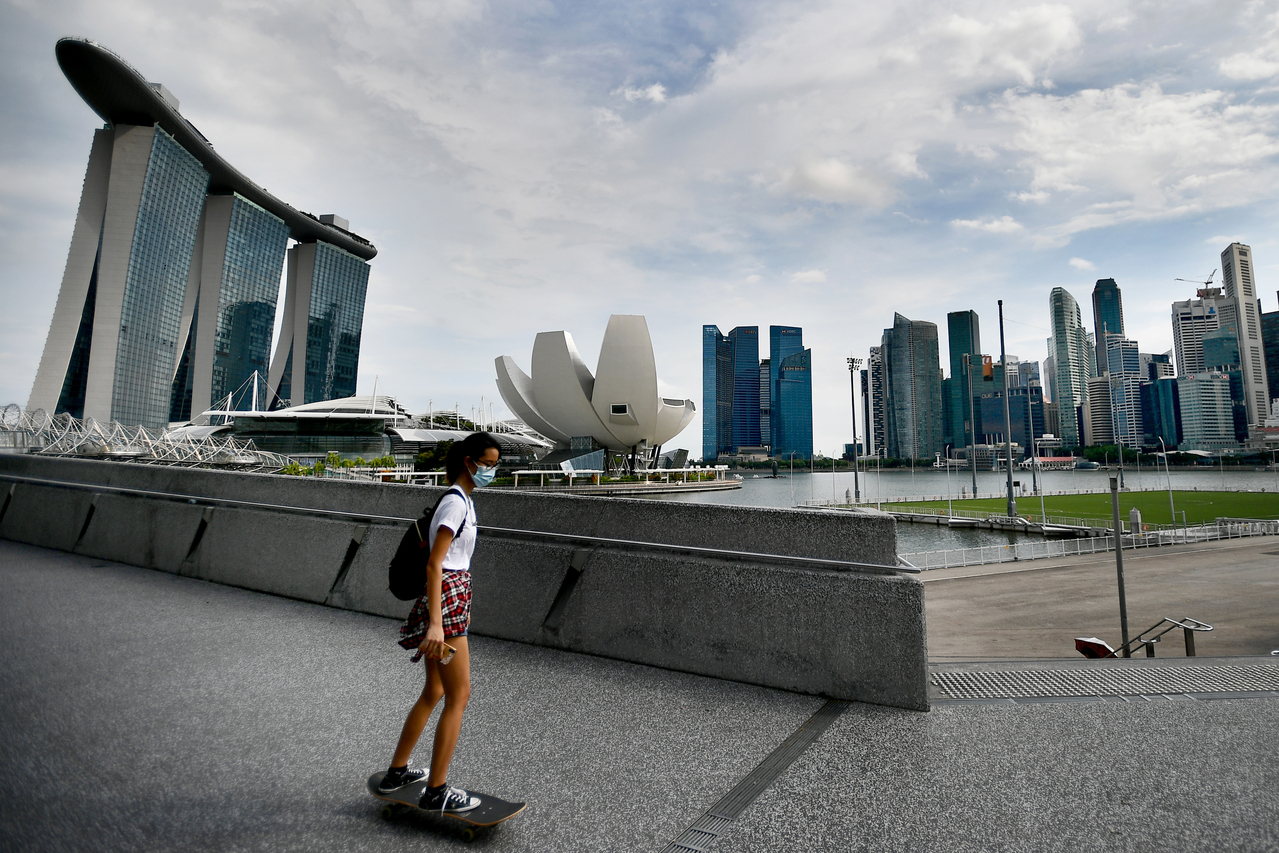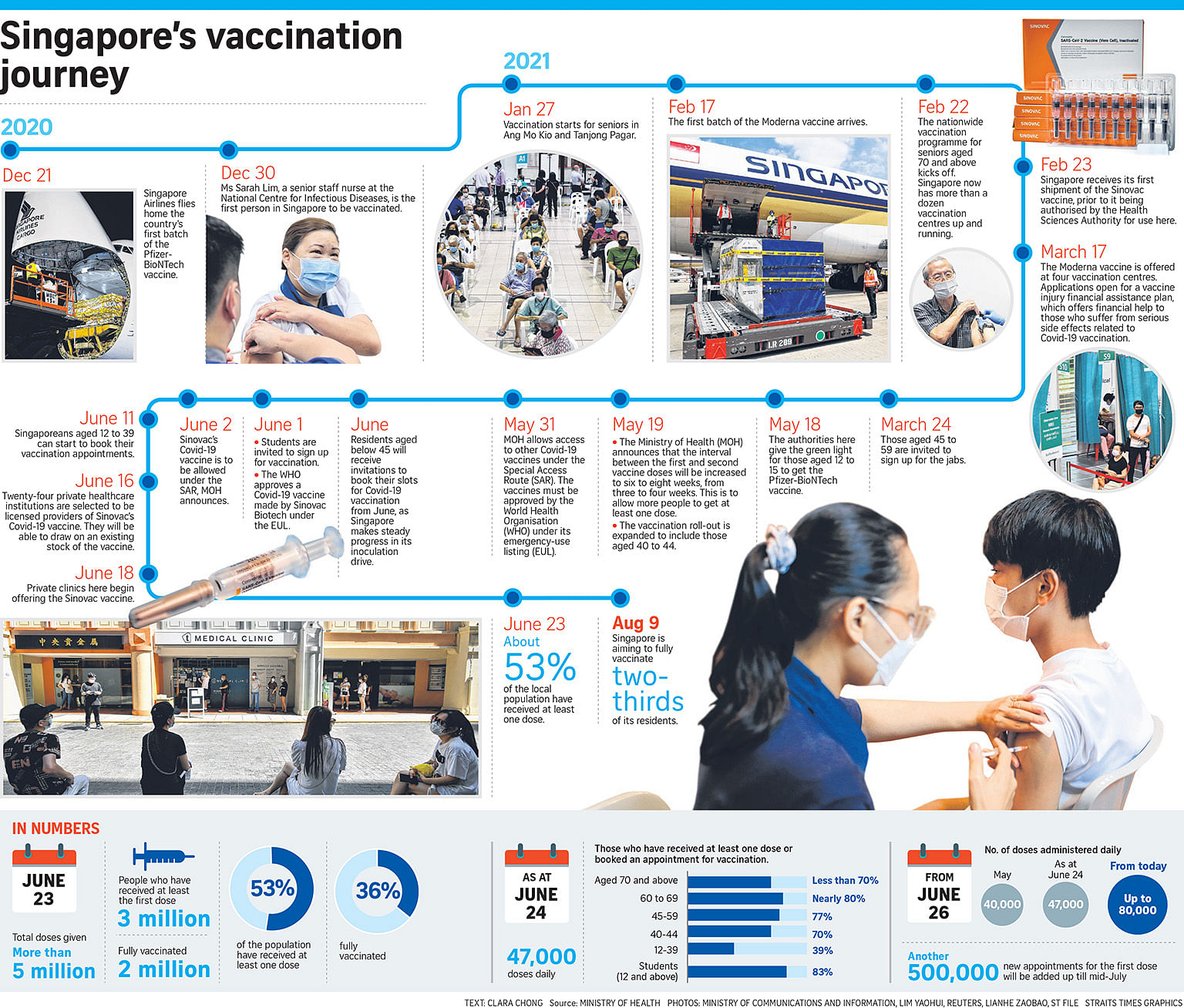Tweaks to Singapore's health and urban policies needed in new Covid-19 normal, say experts
Sign up now: Get ST's newsletters delivered to your inbox

A year and a half after the pandemic broke out, Singaporeans can begin thinking about life with Covid-19 as a part of it.
ST PHOTO: LIM YAOHUI
Follow topic:
SINGAPORE - A Singapore of the not-so-distant future, where Covid-19 is endemic and herd immunity has been achieved through vaccination, will require adjustments in terms of health and urban policies, said experts.
Life for most people here will move to a new normal, where "vaccine passports" may be required not just for travel, but also to take part in daily activities.
Dr Woo Jun Jie from the Institute of Policy Studies at the National University of Singapore, who researches urban policy, said that once herd immunity is reached, a review of how closely packed Singapore is could be in order.
"There may be a need to reconsider Singapore's urban density, as well as to ensure that sufficient space is allocated for safe distancing, should another pandemic occur again," he said.
Besides this, there will be a need to continue building up capacity to adapt, especially in the country's healthcare systems and urban settings.
Dr Woo noted that Covid-19 has shown how important it is to be able to convert existing facilities, such as exhibition halls, into community care facilities.
He noted that both the severe acute respiratory syndrome outbreak in 2003 and the Covid-19 pandemic now have uncovered the need to maintain excess healthcare capacity - such as that provided by the isolation wards at the National Centre for Infectious Diseases (NCID) - in readiness for future pandemics.
NCID, a 330-bed purpose-built facility designed to boost Singapore's capabilities in infectious disease management and prevention, was officially opened on Sept 7, 2019 - a mere few months before Covid-19 struck.
Deputy Prime Minister Heng Swee Keat touched on similar themes at the World Cities Summit earlier this week. In response to a question on what strategies cities could adopt to hasten their recovery after a disruption, he said investing in the future and ensuring trust in authoritative sources of information were some of them.
The Covid-19 pandemic has emphasised the need to be resilient to future pandemics, which are bound to occur again at some point, he said.
Professor Ooi Eng Eong, an expert on emerging infectious diseases at Duke-NUS Medical School, said that in the immediate future, disease control measures will have to be finessed to balance the cost of using vaccines and Covid-19 treatments with their benefits to the population at large.
A year and a half after the pandemic broke out, Singaporeans can begin thinking about life with Covid-19 as a part of it.
On Thursday, the three ministers in charge of the task force tackling Covid-19 said the Government is drawing up a road map to allow people to work, shop and travel, without large-scale quarantine and lockdowns, even with the coronavirus in their midst. This will be done in tandem with achieving certain vaccination milestones.
Singapore Management University law don Eugene Tan said that any changes to policy will be based on scientific evidence. For instance, testing may be required of unvaccinated individuals prior to their attending a mass event such as a concert, but not of vaccinated individuals, he said.
Another possibility is the use of vaccine passports not only for travel, but also in daily life.

Dr Ling Li Min, an infectious diseases physician from Rophi Clinic, said different parts of the world are already doing this.
In Israel, for instance, some matchmaking agencies require a person's vaccination status, and people cannot be matched if they have not been jabbed, she noted.
"Over the next year or so, as the world prepares to jab itself out of Covid-19 (restrictions), and with gradual reopening, pre-event testing and vaccination status would likely be the norm," she said.
"Whether we like it or not, vaccination and testing will be part of our lives."

